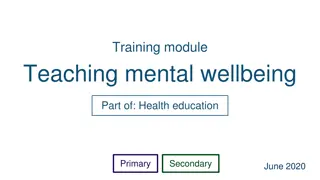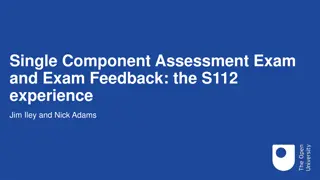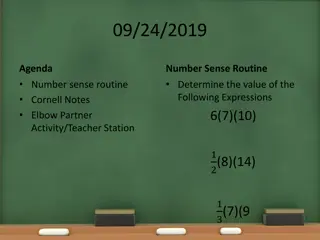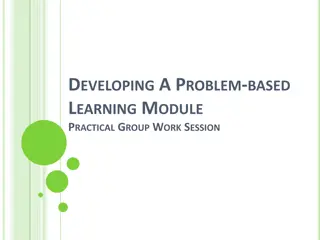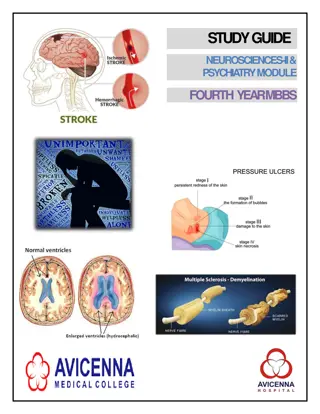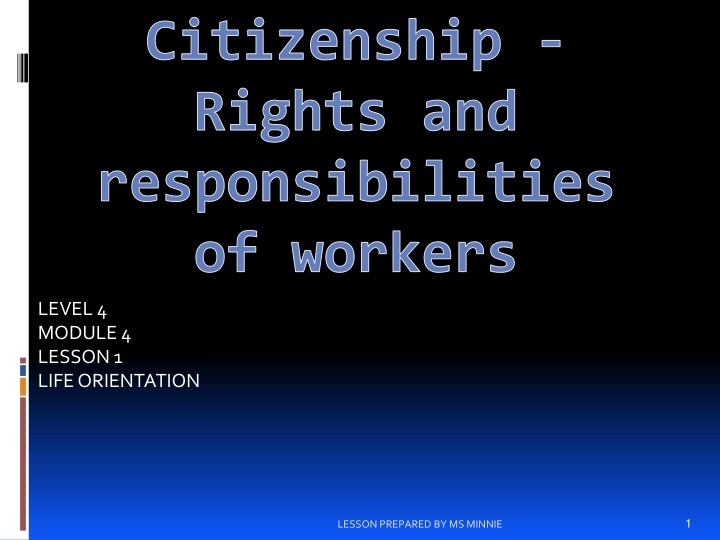
Rights and Responsibilities of Workers: Understanding Job Contracts and Employment Conditions
"Explore the significance of job contracts, the value of employment, and the rights and responsibilities of workers. Learn why job contracts are crucial, the details they should contain, and how they protect both employers and employees in South Africa."
Download Presentation

Please find below an Image/Link to download the presentation.
The content on the website is provided AS IS for your information and personal use only. It may not be sold, licensed, or shared on other websites without obtaining consent from the author. If you encounter any issues during the download, it is possible that the publisher has removed the file from their server.
You are allowed to download the files provided on this website for personal or commercial use, subject to the condition that they are used lawfully. All files are the property of their respective owners.
The content on the website is provided AS IS for your information and personal use only. It may not be sold, licensed, or shared on other websites without obtaining consent from the author.
E N D
Presentation Transcript
Citizenship - Rights and responsibilities of workers LEVEL 4 MODULE 4 LESSON 1 LIFE ORIENTATION 1 LESSON PREPARED BY MS MINNIE
Rights and responsibilities Module 4 2 LESSON PREPARED BY MS MINNIE
The value of working and having a job We earn money to: Buy goods and services. Pay accounts and buy food. Apart from earning a salary we work for the benefits offered by employment. Working makes us feel good and offers a positive impact on others. Gives us a feeling of being useful and any recognition gives us a boost. Gives us a sense of self worth. 3 LESSON PREPARED BY MS MINNIE
The value of working and having a job It creates a solid foundation to build upon a successful future. We develop skills, learn new things and create a record of employment. We contribute to the to the community and society. Working challenges you to become better. A workplace provides a place to be interactive with other people. Lasting relationships are formed. 4 LESSON PREPARED BY MS MINNIE
The RIGHTS of a job contract The Basic Conditions of Employment Act (75 of 1997) (BCEA) regulates employment conditions in South Africa. These conditions relate to overtime, employment contracts and other terms of your employment, such as leave entitlement (annual, family responsibility, sick and maternity leave) is a written and lawful agreement between an employer and worker with details regarding leave, working hours, payment and deductions and termination (ending) the contract. 5 LESSON PREPARED BY MS MINNIE
Why it is important to have a job contract. The law requires everyone to have a legally binding contract when they work. A contract protects all citizens of our country both employers and workers. A formal contract guides an employer to what is just and fair in the workplace. 6 LESSON PREPARED BY MS MINNIE
Basic details of a job contract. Employer and employees details. Employment details. Payment details. Leave details. Notice/contract period. 7 LESSON PREPARED BY MS MINNIE
Worker rights and responsibilities Bill of rights and labour rights. Equality all people are equal and must be treated equal. No one is allowed to discriminate against you because of you race, gender , sex, pregnancy, marital status, ethnic or social origin, colour, sexual orientation, age, disability, religion, conscience, belief, culture, language or birth. 8 LESSON PREPARED BY MS MINNIE
Bill of rights and labour rights. Discrimination is allowed if it is fair. Affirmative action is also allowed: 1. This is a policy that tries to make up for the wrongs of the past, where people were treated unfairly because of race or gender, as well as current wrongs. 2. Even though this sometimes means that people who received an advantage because of apartheid will now be placed at a disadvantage, it is allowed because it is necessary to set right the unequal situation that apartheid created. 9 LESSON PREPARED BY MS MINNIE
Bill of rights and labour rights Slavery, servitude and forced labour (section 13) - these are not allowed. Assembly, demonstration, picket and petition (section 17) You can: 1. Gather together with other people 2. Hold a demonstration 3. Picket; and 4. Present a petition But you must do this peacefully and you may not carry a weapon. 10 LESSON PREPARED BY MS MINNIE
Bill of rights and labour rights Freedom of trade, occupation and profession (section 22) you can choose to do whatever work you want as long as you have the qualifications, skills or experience for the job it is not illegal. 11 LESSON PREPARED BY MS MINNIE
Bill of rights and labour rights Labour relations( Section 23) You have the right to be treated fairly at work. Workers can form and join trade unions and can strike. Trade unions and employers organisation can decide how they will be run. They can get together with other unions and organisations to bargain for what they want. They can also organise themselves by trying to get new members and they can join federations made up of other trade unions or employers organisations. 12 LESSON PREPARED BY MS MINNIE
The Basic Conditions of Employment(75 of 1997) and labour rights. (BCEA) The BCEA sets out the just and fair conditions under which work must be conducted. BCEA summary No worker may be retaliated against for demanding the rights set out by the BCEA of 75 of 1997. An agreement may not require or permit an employee to work more than 12 hours a day. 13 LESSON PREPARED BY MS MINNIE
BCEA -The Basic Conditions of Employment An employee may not work more than 3 hours of overtime per day or 10 hours per week. Senior managers, travelling sales staff and those that work under 24 hours per month are excluded. Workers may not work for more than 12 hours overtime each week. An extended week may be arranged by way of a compressed work week of no more than 12 hours per day. 14 LESSON PREPARED BY MS MINNIE
BCEA -The Basic Conditions of Employment Any worker agreeing to an 11p.m to 6a.m shift must be debriefed on health and safety risks, as well as compensated for regular medical examinations. Employees may not take annual leave away from workers while they are enjoying special leave privileges such as maternity or sick leave. 15 LESSON PREPARED BY MS MINNIE
BCEA -The Basic Conditions of Employment Family responsibility leave may be taken on account of the birth or sickness of a child, or the death of a spouse, child, parent, grandparent, grandchild or sibling. Deductions may only be made from employee s pay if they are agreed to in writing and are either a legal requirement or part of a collective agreement, arbitration or court order. 16 LESSON PREPARED BY MS MINNIE
BCEA -The Basic Conditions of Employment Four weeks notice must be provided to workers of more than one year before termination of their job contract. Workers must be permitted to challenge their dismissal of established labour policy. Collective agreements via the Bargaining Council may differ from the Act as long as workers protection is not reduced in regards health, safety or family responsibility. In addition to investigating complaints, Labour Inspectors must notify workers of their rights and responsibilities. 17 LESSON PREPARED BY MS MINNIE
The Labour Relations Act (66 of 1995) and labour rights. The LRA regulates and realises the fundamental rights of workers and employers enshrined in the Constitution. These are Everyone has the right to fair labour practices Every worker has the right to form and join a trade union, to participate in the activities and programmes of a trade union and to strike . 18 LESSON PREPARED BY MS MINNIE
LRA-The Labour Relations Act Every trade union and employers organisation has the right to determine its own administration, programmes and activities, to organise and to form a federation Every trade union, employers organisation and employer has the right to engage in collective bargaining. National legislation may recognise union security arrangements contained in collective agreements. 19 LESSON PREPARED BY MS MINNIE
Major issues addressed by the LRA are: Freedom of association and general protection. Collective bargaining. Strikes and lockouts. Workplace forums. Trade unions and employers organisations. Dispute resolutions. Unfair dismissal and unfair labour practice. 20 LESSON PREPARED BY MS MINNIE
The Employment Equity Act (55 of 1998) and labour rights The purpose of the (EEA) is to promote equal opportunity and fair treatment of all workers in the workplace. This Act prohibits unfair discrimination in the workplace and larger employers (having 50 or more workers) must apply affirmative action plans to ensure that designated (selected) groups (black people, women and people with disabilities) are equally represented in the workforce. 21 LESSON PREPARED BY MS MINNIE
Employment Service Bill and labour rights The Employment Services Bill is intended to promote the employment of citizens and improve access to the labour market for job seekers. It also facilitates access by jobseekers to training and promotes employment growth and workplace productivity. 22 LESSON PREPARED BY MS MINNIE
The Skills Development Act (97 of 1998) and labour rights The government took responsibility with the Skills Development Act to ensure that the skills of its citizens are developed so that every citizen can exercise the right and freedom to choose a trade, occupation or profession as a career. The SDA promotes lifelong learning and skills development to improve the productivity of the workers and the quality of working life. 23 LESSON PREPARED BY MS MINNIE






